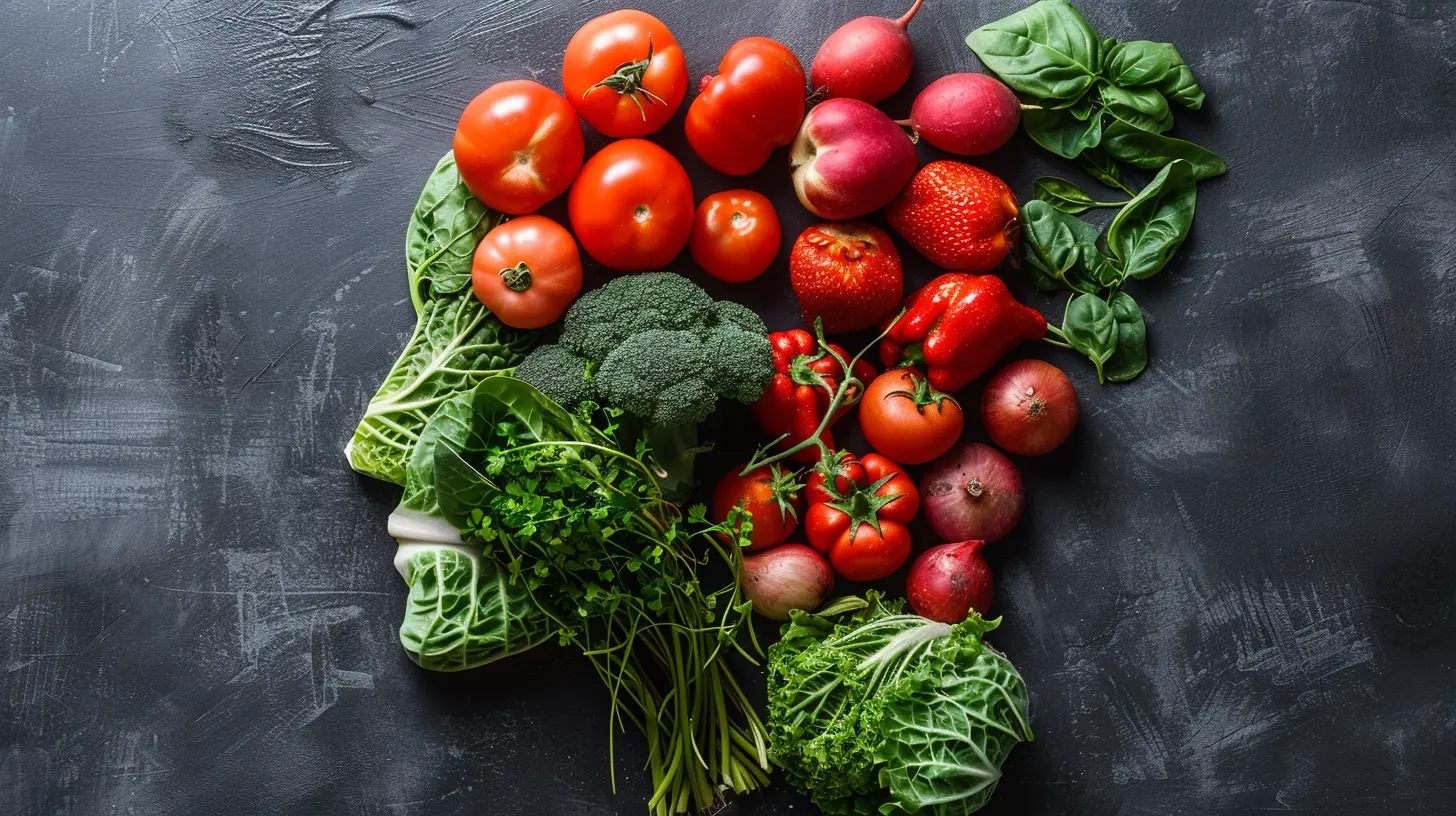Mindful Eating: How Your Thoughts Influence Your Diet
9 November 2025
Have you ever caught yourself devouring a bag of chips only to wonder where it all went? Or maybe you're halfway through a tub of ice cream before realizing you weren’t even that hungry? Yeah, we’ve all been there. But here’s the tea—your mind has a whole lot more to do with your eating habits than you think.
Mindful eating isn’t just about what you put on your plate; it's about what’s going on in your head. Your thoughts, emotions, and habits shape the way you approach food, and if you’re not paying attention, your brain might be the one making food choices—not your stomach. So, let’s break it down and get real about how your thoughts influence your diet.

What Is Mindful Eating, Really?
Mindful eating is all about being present while you eat. Imagine savoring every bite of food, actually tasting the flavors, feeling the textures, and appreciating every morsel instead of just inhaling it while binge-watching your favorite show. It’s about slowing down, tuning in to your body’s hunger and fullness cues, and making conscious food choices.It’s the opposite of mindless eating—where you find yourself munching on snacks just because they’re there or eating out of boredom, stress, or habit. Mindful eating puts you back in control instead of letting your emotions run the show.

The Connection Between Thoughts and Eating
Let's get one thing straight: your thoughts control everything. What you think influences what you do, how you feel, and, most importantly, what you eat.1. Emotional Eating: Your Feelings on a Plate
Ever felt stressed and suddenly found yourself knee-deep in a pizza? That’s emotional eating at work. When emotions take over, your brain craves comfort food—things that give you instant gratification (hello, ice cream and fries). But here’s the problem: food isn’t therapy. Sure, it feels comforting in the moment, but it doesn’t actually fix the stress, sadness, or boredom that made you eat in the first place.What to do instead?
Before reaching for food, ask yourself: Am I actually hungry, or am I just eating to fill an emotional void? If it’s emotional, try addressing the root cause. Journal, take a walk, talk to a friend—do something other than diving headfirst into a bag of chips.
2. Your Inner Critic & The "All or Nothing" Mentality
Ever told yourself, "Well, I already ate one cookie, might as well eat the whole batch now"? That’s diet sabotage, my friend! This all-or-nothing mindset makes one small “slip-up” feel like a total failure, leading you to overeat out of guilt.Newsflash: One cookie isn’t going to ruin your body, and one salad isn’t going to magically make you healthy. Balance is key. Instead of beating yourself up, acknowledge it, move on, and make a better choice next time. You’re human—perfection isn’t the goal; consistency is.
3. Food Guilt & Labeling Foods "Good" or "Bad"
We’ve all been conditioned to think some foods are “good” while others are “bad.” But food shouldn’t come with guilt. When you label foods as "bad," you automatically feel like a failure when you eat them, which can trigger a cycle of shame and overeating.The fix?
Stop demonizing food. Everything in moderation, baby! Instead of thinking I can’t have this, reframe it as I can enjoy this in balance. Giving yourself permission to eat what you love—without guilt—often makes you less likely to overdo it.

How Your Mind Can Help You Make Better Food Choices
1. Tune Into Your Hunger Cues
Believe it or not, your body is pretty smart—it actually tells you when it’s hungry and when it’s full. The problem? Most of us ignore those signals. Mindful eating means checking in with yourself before, during, and after meals to see if you're actually hungry or just eating out of habit.Before reaching for food, ask yourself:
✅ Am I physically hungry, or just bored, stressed, or emotional?
✅ What does my body actually need right now?
✅ Am I satisfied, or am I eating just because the food is there?
2. Slow Down & Savor Your Food
When was the last time you actually tasted your food? If you eat too fast, your brain doesn’t get the memo that you’re full until it’s too late. Slow it down! Chew thoroughly, put your fork down between bites, and focus on the flavors. Not only will this help digestion, but it also makes meals way more satisfying.3. Ditch Distractions
Eating in front of your phone or TV turns food into background noise, making it easy to overeat without even realizing it. Instead, try eating at the table without distractions. Pay attention to your food, enjoy the textures, and listen to your body when it says it’s full.4. Practice Gratitude for Your Food
This might sound a little woo-woo, but stick with me. Before you eat, take a second to appreciate your food. Think about where it came from, the effort it took to prepare it, and how it’s nourishing your body. Gratitude shifts your mindset from eating just to eat to truly valuing what’s on your plate.
Practical Tips to Start Eating Mindfully
Let’s face it—old habits die hard. But making small changes can make a huge difference. Here’s how to get started:- Stop eating straight from the bag. Portion out your food so you actually see what you're eating.
- Use smaller plates. Bigger plates = bigger portions. Trick your brain by using a smaller dish!
- Put your fork down between bites. This forces you to slow down and actually taste your food.
- Drink water before meals. Sometimes thirst masquerades as hunger. Stay hydrated!
- Check in with your hunger. Before grabbing a snack, ask yourself: Am I really hungry?
- Limit distractions. Step away from screens and focus on your food.
The Bottom Line
Mindful eating isn’t about following a strict diet or obsessing over every bite—it’s about being present, listening to your body, and breaking free from unhealthy eating habits. When you start paying attention to why you eat instead of just what you eat, you'll gain control over your food choices without the guilt, stress, and frustration.So, the next time you reach for that snack, take a moment. Tune in. Ask yourself what you really need. Because when you start feeding your mind as well as your body, that’s when real change happens.
all images in this post were generated using AI tools
Category:
Mind And Body ConnectionAuthor:

Alexandra Butler
Discussion
rate this article
1 comments
Ainsley McGuffin
This article offers valuable insights into the connection between mindfulness and eating habits. By understanding how our thoughts impact our dietary choices, we can cultivate healthier relationships with food. The tips provided are practical and can help readers make positive changes in their eating behaviors. Great read!
November 23, 2025 at 3:55 AM

Alexandra Butler
Thank you for your thoughtful feedback! I'm glad you found the insights and tips helpful for fostering a healthier relationship with food. Happy reading!


